Photos: Problems beset California’s medical prison
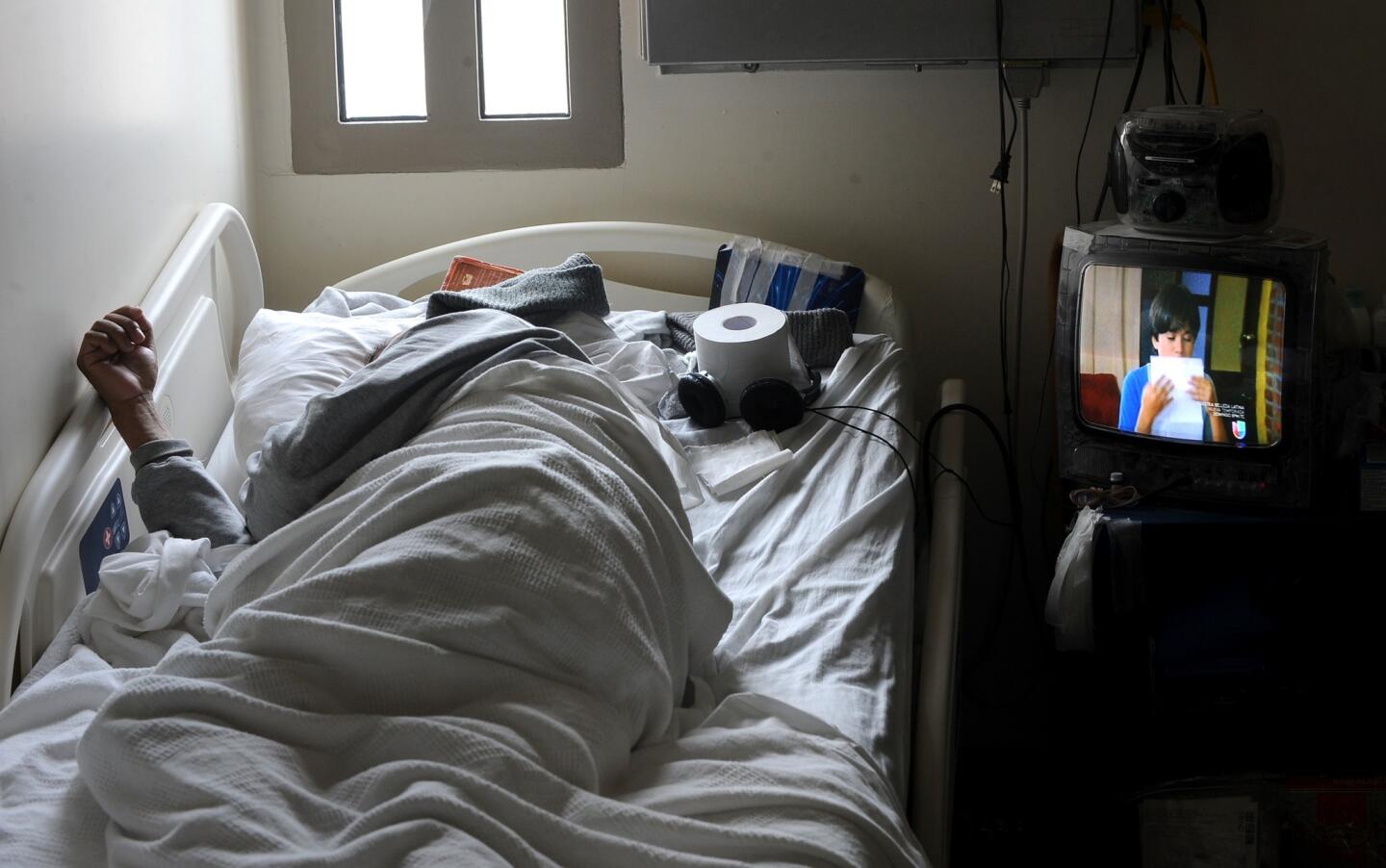
A man sleeps in his cell at the California Health Care Facility outside Stockton. A prisoner rights lawyer, touring the facility in January to check on compliance with disabled access laws, said she was shocked by the extent of the problems. (Wally Skalij / Los Angeles Times)
California’s $840-million medical prison is the largest in the nation.
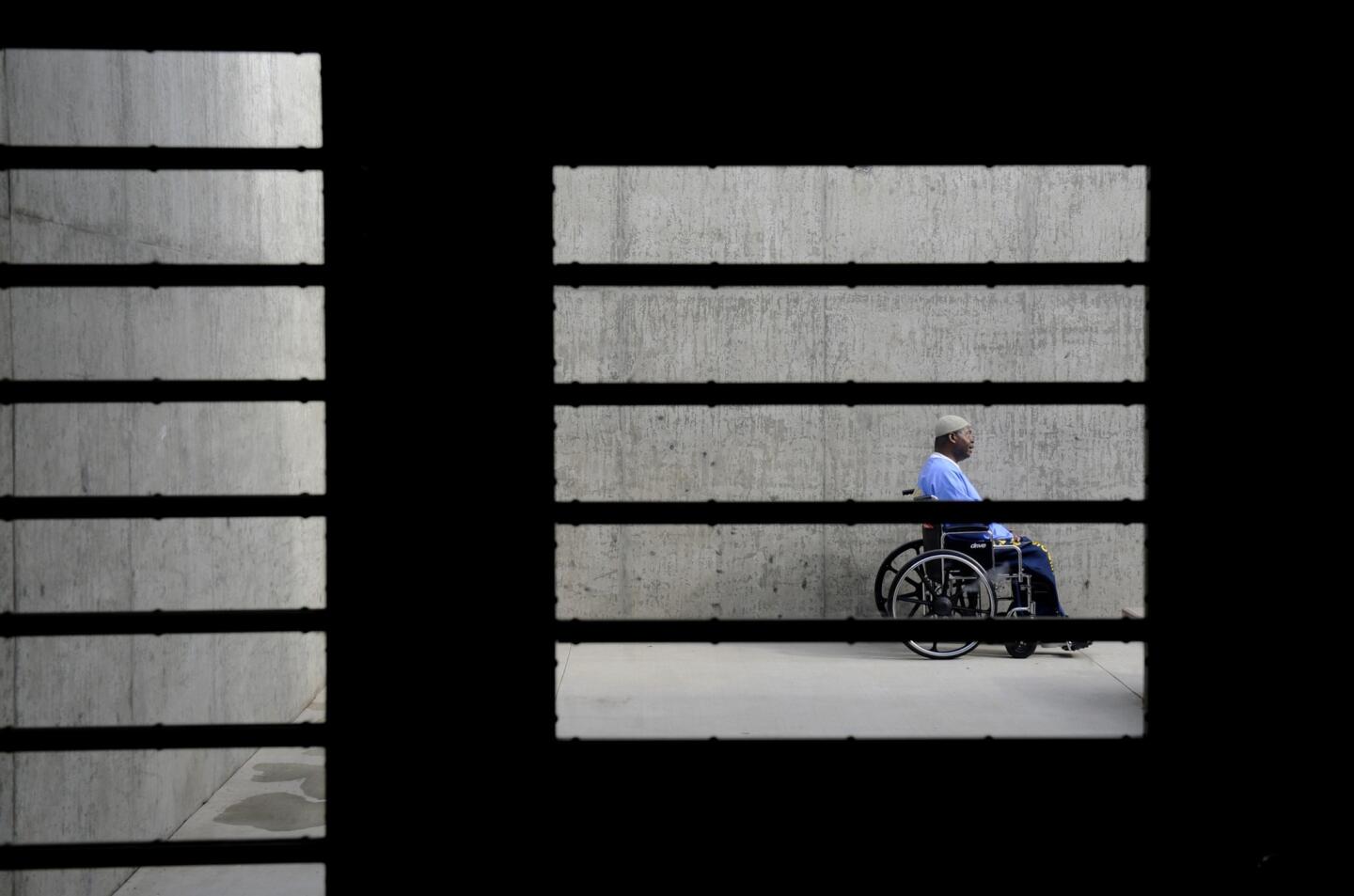
An inmate sits in a courtyard at the California Health Care Facility. Reports filed by prison staff and inmate-rights lawyers described prisoners left in broken wheelchairs and lying on soiled bedsheets. At one point, administrators had to drive into town to borrow catheters from a local hospital. (Wally Skalij / Los Angeles Times)
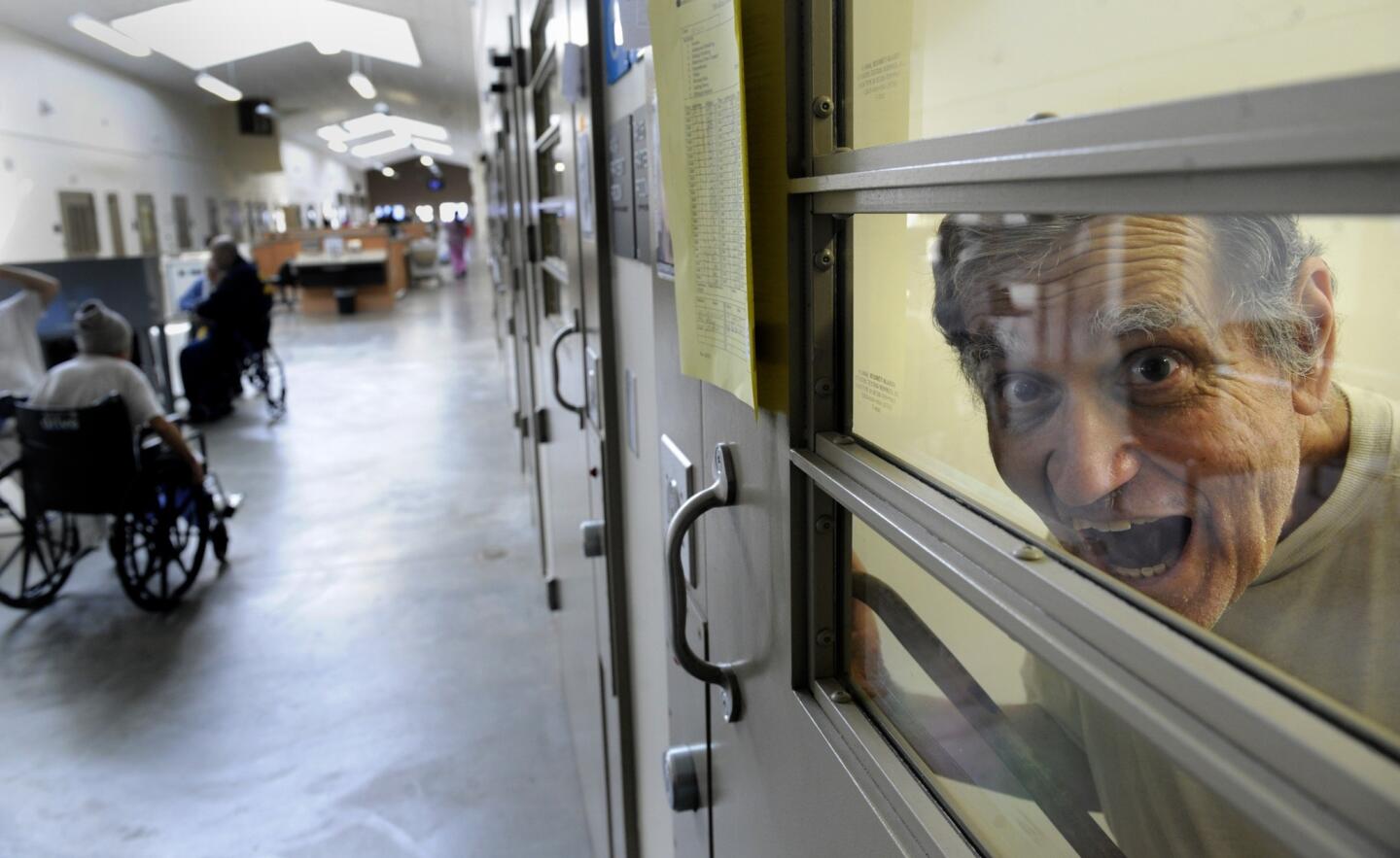
An inmate peers through a window at the complex. “This place was supposed to fix a lot of what was wrong,” said a prisoner rights lawyer. “But they not only were not providing care, but towels or soap or shoes.” (Wally Skalij / Los Angeles Times)
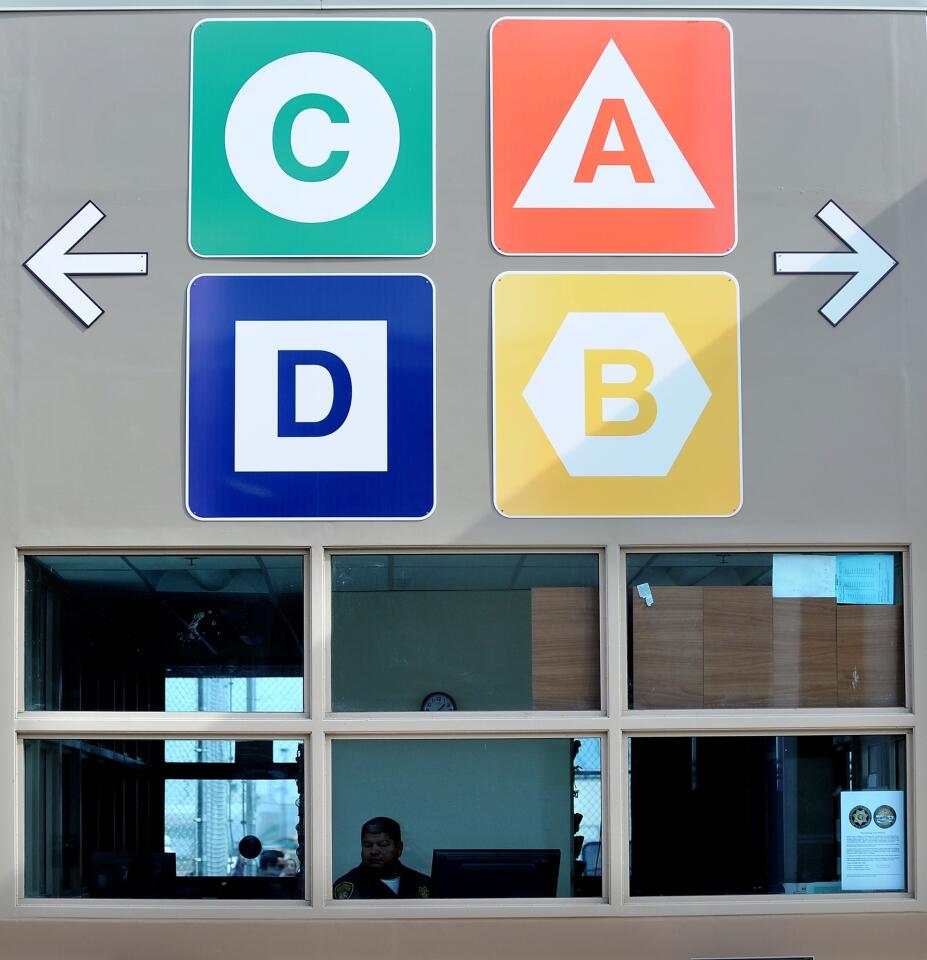
A guard keeps an eye on things at the new medical prison outside Stockton. Prisoner advocates in January quoted nurses who complained they could not get latex gloves that fit or adult diapers that didn’t leak. The shortages were documented in a report sent to corrections officials in Sacramento. (Wally Skalij / Los Angeles Times)
Advertisement
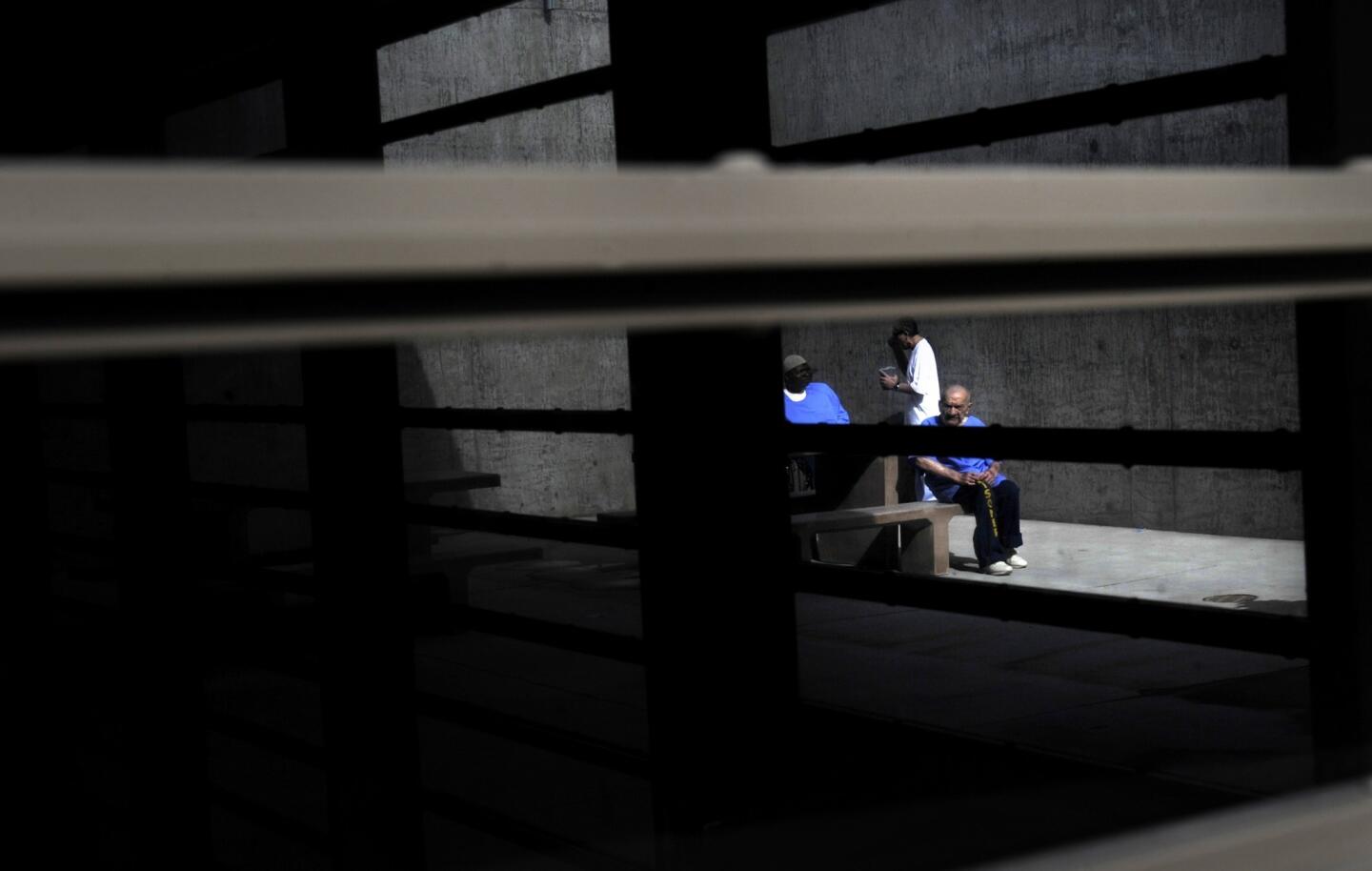
Inmates socialize in the prison’s courtyard. Deborah Hoffman, a spokeswoman for the state Department of Corrections, said problems are unavoidable for any new lockup. But J. Clark Kelso, the court-appointed federal overseer for California’s prison medical system, said the facility’s woes go beyond shortages and missteps. (Wally Skalij / Los Angeles Times)
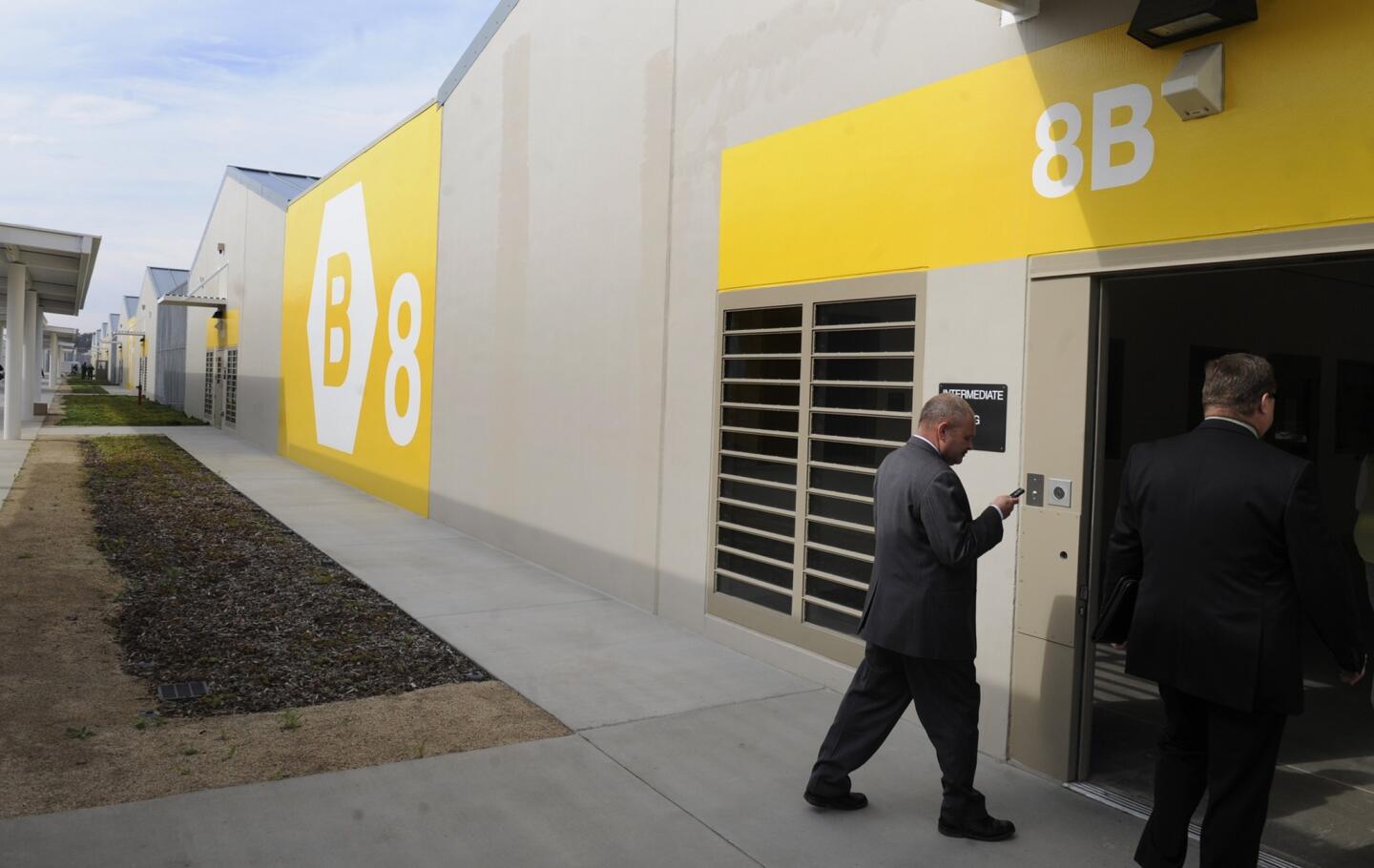
Prison officials walk into the prison. The troubles at the facility reflect the decade-long battle for control of California’s prisons, a system that also is the state’s largest medical care provider. (Wally Skalijn / Los Angeles Times)
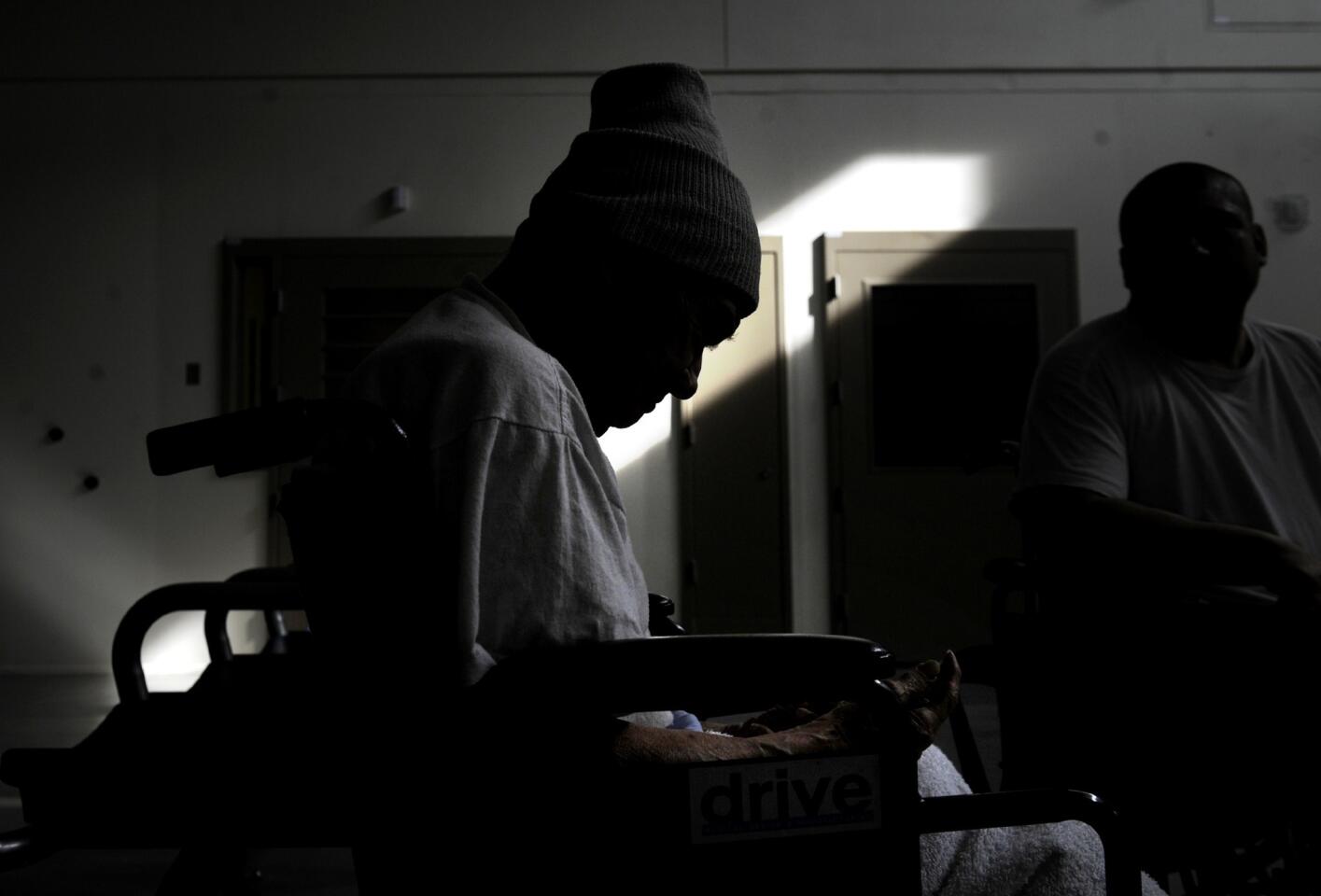
An inmate sits in a wheelchair at the prison. The state had underestimated the number of nurses and guards needed, and there were not enough staffers to unlock doors, help disabled prisoners move about or take patients to the showers. (Wally Skalij / Los Angeles Times)







